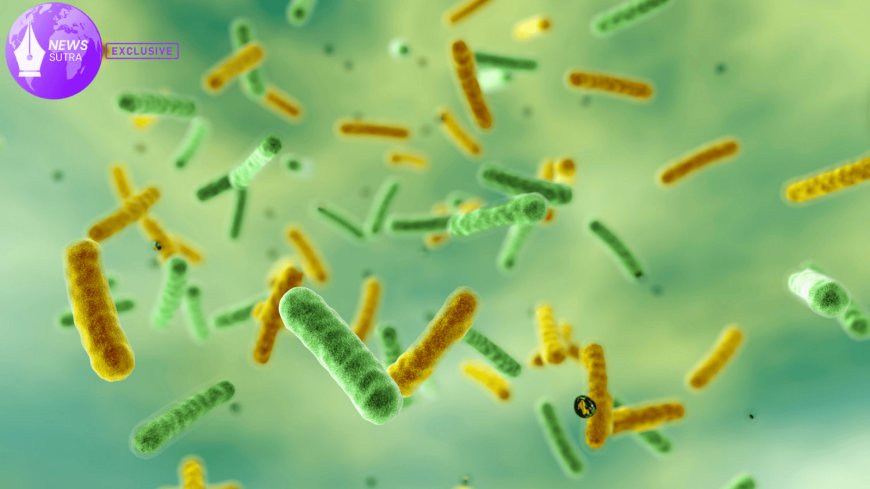Inside the Womb: How Prenatal Microbes Shape the Developing Brain, MSU Study Finds
Michigan State University researchers uncover how maternal gut microbes shape fetal brain development, with implications for stress resilience and prenatal care.

A Breakthrough That Redefines Prenatal Science
In a discovery that could transform our understanding of human development, researchers at Michigan State University (MSU) have revealed how gut microbes in pregnant mothers play a direct role in shaping the developing brains of their unborn children. The study, published this week, highlights how maternal microbiomes can influence stress-related neurons before birth, suggesting new avenues for early interventions that may improve lifelong mental health outcomes.
What makes this breakthrough especially significant is the combination of cutting-edge 3D brain imaging and in-depth microbial analysis. Together, these methods revealed previously hidden interactions between microbes and brain structures, painting a far more detailed picture than scientists have ever seen.
Microbes as Early Architects of the Brain
The study examined how certain bacterial strains in a mother’s gut affect fetal brain regions responsible for regulating stress, anxiety, and emotional responses.
Lead researcher Dr. Kathryn Lenz, a neurobiologist at MSU, explained that the connection is stronger than once imagined:
“We often think of gut microbes as influencing digestion or immunity, but what we’re finding is that they’re also shaping the architecture of the fetal brain in ways that could affect mental health long after birth.”
These findings point toward a biological bridge between maternal health and neurodevelopment, challenging traditional views that saw the womb as an isolated environment. Instead, maternal microbes act as chemical messengers, producing metabolites that cross into the developing fetus and influence how neural circuits are wired.
The Role of 3D Brain Imaging
One of the most striking features of the MSU project was its reliance on high-resolution 3D brain imaging technology. Using models of fetal brain scans, researchers were able to pinpoint how microbial changes aligned with variations in neuron development.
The images revealed clusters of neurons in stress-related regions—like the amygdala and hypothalamus—that were highly responsive to specific microbial metabolites. These clusters appeared denser and more interconnected in fetuses exposed to rich maternal microbiomes, suggesting stronger foundations for emotional regulation.
Interviews with the Research Team
Dr. Lenz, along with co-researcher Dr. Kevin Theis, emphasized that while the study does not claim to have solved prenatal stress disorders, it does offer a critical starting point for preventive care.
Dr. Theis noted:
“We now see the potential for interventions during pregnancy that might reduce risks for conditions like anxiety disorders or depression later in life. Supporting maternal gut health could become as important as prenatal vitamins.”
A Link to Prenatal Interventions
This work builds on decades of research connecting the gut-brain axis to human health. What’s different here is the prenatal timing—interactions happening before birth that may set the stage for resilience or vulnerability.
Potential interventions could include:
-
Probiotic therapies tailored for pregnancy.
-
Dietary recommendations supporting microbial diversity.
-
Non-invasive microbial monitoring during prenatal checkups.
Such approaches, if validated in clinical trials, could fundamentally shift how obstetricians guide mothers-to-be.
Implications Beyond the Lab
The significance of MSU’s research extends beyond neuroscience. It speaks directly to how science is reshaping public health strategies in the United States. With rising rates of maternal stress, anxiety, and postpartum complications, this new microbial perspective could influence policy, prenatal care programs, and even insurance coverage for maternal health services.
For those following advancements in neuroscience, this echoes similar breakthroughs like the National Institute of Mental Health’s studies on microbiome-brain links (NIH Research) and global work on maternal health.
Regional and National Context
The MSU study comes as U.S. research institutions increasingly collaborate across fields—from genomics to microbiology to obstetrics—to address maternal and child health disparities. States with stronger maternal health programs, such as California and Massachusetts, are already exploring pilot programs that integrate microbiome awareness into prenatal care.
Meanwhile, rural and underserved areas, where access to both prenatal care and nutritious food is limited, remain at greater risk. The MSU findings raise urgent questions about how to ensure equal access to interventions once they become available.
Looking Ahead
The road ahead will require careful testing and ethical considerations. Manipulating the maternal microbiome is no small task, and long-term studies will be needed to determine whether interventions are safe and effective. Still, the study’s findings point to an exciting new chapter in reproductive and mental health science.
As Dr. Lenz concluded:
“We are only at the beginning of understanding how prenatal environments shape the brain. But if microbes are part of that story, then we’ve just opened a powerful new tool for ensuring healthier lives.”
What's Your Reaction?
 Like
0
Like
0
 Dislike
0
Dislike
0
 Love
0
Love
0
 Funny
0
Funny
0
 Angry
0
Angry
0
 Sad
0
Sad
0
 Wow
0
Wow
0








































































